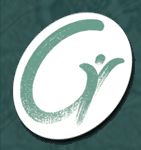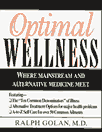![]() Dr.
Golan's Articles
Dr.
Golan's Articles
Remedies for a Sleepless Night Q: I can never sleep through the night. Seems like I've tried everything. What remedies do you recommend? A: I hear from at least one patient a day about sleep problems. Either they cannot fall asleep easily at bedtime, or they awaken in the middle of the night and can't get back to sleep. Such chronic sleep disturbances lead to a variety of problems: fatigue, lost motivation, irritability, depression and immune-system dysfunction. So, assuring good sleep is a health priority that I emphasize with my patients. To seek the causes of a sleep disturbance, I ask patients whether they ate or drank something that could interfere with sleep. Most obvious is caffeine, which can unknowingly be consumed in chocolate, diet pills and some pain medications. Alcohol, although considered a nervous-system depressant, also can disturb sleep. So can sugar. Even natural products, such as the herbs ginseng, ephedra, guarana and kola nut, can disturb sleep. Adrenal and thyroid-glandular food supplements can be overstimulating. Although B-complex vitamins usually help people sleep, an extremely small percentage of the population is unable to tolerate some B vitamins and will experience agitation and insomnia. A small percentage of the population will also respond the same way to dehydroepiandrosterone (DHEA) supplements. The problem with any of these substances may be that they are taken too late in the day or that too much is consumed. For some people, even small amounts or morning dosages are too much. If the problem is being caused by an otherwise beneficial medicine or supplement, a substitute treatment needs to be found that won't erode sleep. If the problem doesn't lie in that direction, I suggest that - before turning to external remedies - my patients try the simple behavior changes that help so many people to fall asleep and stay asleep. Since stress and anxiety are extremely common causes of insomnia, I suggest self-care measures than can help. Exercise is one. Jogging, biking, dancing, walking and yoga all give the body some activity that can insulate you from stress and enhance sleep. (Vigorous exercise is best done earlier in the day.) Skilled relaxation exercises also can induce a state that enhances sleep. In visualization, you imagine a relaxing or loving experience. In progressive muscular relaxation, you imagine a state of complete relaxation in each part of the body, in sequence. With relaxation response, you silently say a calming word or phrase with each outgoing breath. In yet another breathing technique, you focus on the sensation that each breath makes as it enters or leaves your nostrils. As simple as these exercises seem, they can, with the proper focus, bring deep calm and well-being. Other self-care measures include making your bedroom more serene, listening to a relaxation tape, taking a warm bath and planning other relaxing activities in the evening. If those measures don't work, I recommend that my patients try one of a number of nonaddictive remedies that may help them fall asleep more easily and possibly help them sleep longer. These include supplemental calcium at bedtime (up to 1000 mg with or without magnesium); sedative-like herbs, such as valerian, passionflower, skullcap or hops (often available in combination herbal or herbal/vitamin sleep formulas); passion flower tea alone (brewed strongly-up to 5 teasp in a cup); vitamins B-6 and niacinamide (as part of a multi or in a combination sleep formula); homeopathic sleep formulas (available in most health food stores); and the amino-acid derivative, 5 hydroxytryptophan (5 HTP 100 to 400 mg at bedtime: avoid 5 HTP if also using SSRI type antidepressant medication such as prozac, zoloft, paxil, etc). If sleeplessness is related to anxiety, I suggest to my patients to try inositol, 1000 mg up to 3000 mg near bedtime. I emphasize to my patients to take an adequate dose of these remedies to do the job, but to eventually find the lowest effective dose. Also, it is important to note that some of these remedies may cause morning drowsiness or have other minor adverse effects. These effects are rather individual, so it requires a bit of experimentation to determine which ones are best tolerated and effective. The hormone melatonin is often used successfully for insomnia, but I am uncertain of its long-term safety when used in doses above the physiologic 0.3 mg. I recommend higher doses, up to 3 or 4 mg -- if needed, but only for periodic use. I recommend for those individuals interested in trying these natural remedies to first consult with your physician and pharmacist to find out if there are any contraindications to using them regarding adverse interactions with current medications or current conditions. For still-resistant cases, I refer my patients to an acupuncturist. Sometimes I recommend cranioelectric stimulation (CES), in which the patient uses a small device to administer a slight, safe current - one natural to the body - to the ear lobes that helps normalize electrical currents in the brain. To people whose efforts to use relaxation and remedies have failed, I often recommend certain prescription drugs, a talk with a therapist or evaluation by a sleep clinic. Before I begin prescribing various sleep remedies, however, I look very carefully for evidence of common underlying conditions that frequently disturb brain metabolism and which can then disturb sleep. Low or rapidly falling blood-sugar levels can wake you up. Having a small protein-carbohydrate balanced snack before bed can sometimes prevent this hypoglycemic occurrence. Food allergy and yeast overgrowth can also disturb brain chemistry and sleep. Insomnia can also be a manifestation of menopausal-hormonal changes and of both high and low thyroid function. It can also be a result, of course, of depression. Elevated cortisol levels at night also can make it quite difficult to sleep properly. So measuring adrenal function can be important. Implementing cortisol-reduction measures, one of which is to take phosphatidyl serine at bedtime, is instrumental. Sleep is unquestionably one of the most vital measures we have for maintaining mental, emotional and physical health. If your sleep is consistently interrupted or inadequate, or in any way unrestorative, taking measures to improve the quality of your sleep is paramount.
All rights reserved. Website design, hosting and maintenance by New Tech Web, Inc.
|





